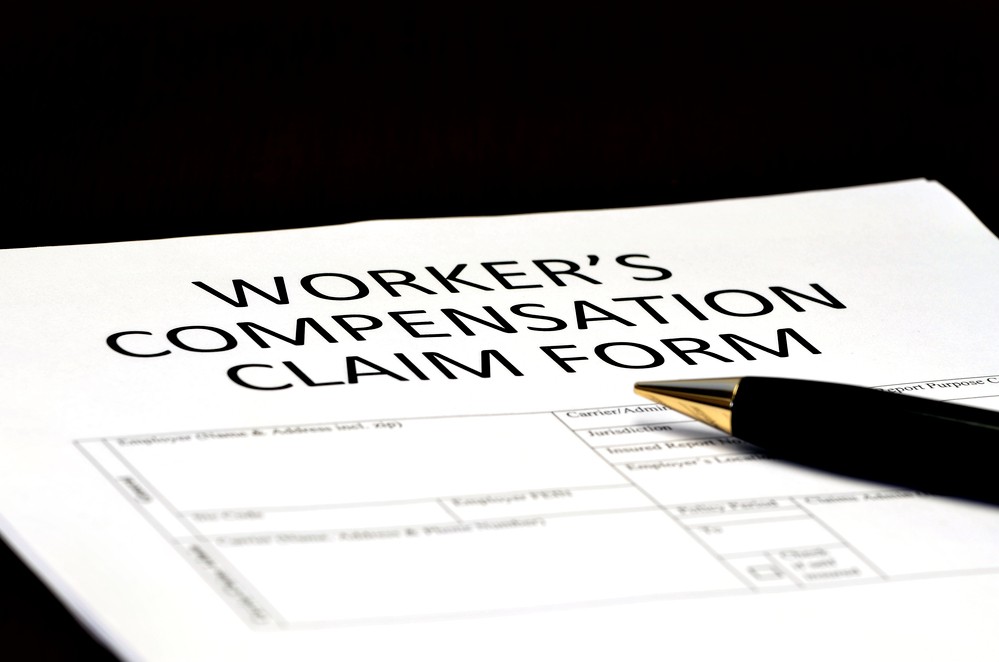Wage And Hour Laws Florida – Read These 12 Laws Before You Abuse Any Labor’s Rights!
Did you know that according to a recent study, 85% of workers feel overworked and stressed out? If you’re one of those workers, you know how hard it is to find the time and energy to fight for your rights.
Honestly, many employees don’t know their rights and allow their employers to take advantage of them. This is where we step in. Our mission is to educate workers about their rights so they can fight for what they deserve.
This article will discuss 12 key wage and hour laws in Florida that every worker should know. Let’s start the article without wasting any time now.

The Wage And Hour Laws Florida
Let’s discuss a scenario, and You have been working for a company in Florida for the past two years. You have been working long hours, often putting in 50 or 60 hours a week, but you have never complained because you need the job and like the company. But then, one day, you are suddenly let go without notice or severance pay. You are shocked and angry but don’t know what to do.
First of all, don’t panic. You have rights under the law and can take steps to get the compensation you deserve.
Florida’s wage and hour laws are governed by the Florida Minimum Wage Act and the Fair Labor Act (FLSA). These laws protect workers from being exploited by their employers and ensure they are paid fairly for their work.
Regulation of Wage And Hour Laws Florid
The regulation of wage and hour laws in Florida means that the state has specific laws and regulations to govern how employers must treat their employees regarding pay and hours. These laws ensure workers are paid a fair wage for their work hours.
Over time, the state of Florida has enacted several different laws to protect workers. These laws cover the minimum wage, overtime pay, vacation pay, and more.
The following is a list of some of the key wage and hour laws in Florida:
Florida Overtime Laws
According to the FLSA, you will get paid more if you work over 40 hours. Overtime is usually 1.5 times the employee’s regular rate of pay.
Some exceptions to this rule include:
- Executives, administrators, and professionals
- Outside salespeople
- Some computer professionals
- Some seasonal and agricultural workers
Minimum Wage Laws
The current minimum wage in Florida is $10 per hour. Employers must pay employees at least this amount for each worked hour.
Some exceptions to the minimum wage laws include:
- Tipped employees
- Students
- Trainees
- People with disabilities
Minimum wage laws are enforced by the U.S. Department of Labor’s Wage and Hour Division.
Prevailing Wage Laws
Prevailing wage laws require employers to pay workers a “prevailing wage” for work on public projects. The prevailing wage is determined by the type of work performed and the project’s location.
The following are some examples of public projects:
- Construction of highways, bridges, and other public works
- Building or repairing schools, hospitals, and other public buildings
- Working on sewage systems, waterlines, and other public utilities
The prevailing wage is usually higher than the minimum wage because it considers the skill level required for the work and the cost of living in the area where the work will be performed.
Prevailing wage laws are enforced by the U.S. Department of Labor’s Wage and Hour Division.
Meals And Breaks
Meal breaks are typically 30 minutes or longer and must be unpaid. If the employer provides employees with paid break time, it must be at least 20 minutes long and be given at the employee’s regularly scheduled mealtime.
Paid Vacation Time
Florida law doesn’t require employers to offer their employees paid vacation If the employer does choose to offer vacation benefits, the employer must comply with the rules outlined in the FLSA.
The FLSA doesn’t require employers to offer employees paid vacation time, but if they do offer vacation benefits, the following rules apply:
- Vacation pay must be included in the employee’s regular rate of pay
- Employees must be paid for vacation time when they take it
If the employer has a policy that allows employees to carry over vacation time from one year to the next, the employer must pay out any unused vacation time when the employee leaves the company.
Sick Leave
Florida law doesn’t require employers to offer their employees with paid sick leave. If the employer does choose to offer sick leave benefits, they must comply with the rules outlined in the FLSA.
Florida Holiday Pay
The Florida Holiday Pay Law is a state law that requires employers to pay their employees extra on holidays. The law applies to all private sector employers, regardless of size.
Employees who work on a holiday are entitled to time and one-half pay for all hours worked up to eight hours. Employees who work more than eight hours on holiday are entitled to double pay for all hours worked over eight.
The law also requires employers to pay employees who are required to work an additional two hours on holiday at their regular pay rate, even if they do not work those hours. The Florida Holiday Pay Law protects workers and ensures they are fairly compensated.
Maternity And Paternity Leave
If you’re a working parent in Florida, you may be wondering what your options are when taking time off after the birth or adoption of a child. The good news is that Florida offers several different types of leave that can help you bond with your new baby and adjust to life as a family.
The first type of leave is called maternity leave. This is leave taken by the mother before and after the birth of her child. In Florida, maternity leave can last up to six weeks. You may be able to take this leave even if you don’t have a medical reason for doing so. For example, if you’re breastfeeding, you may be able to take advantage of this leave.
Paternity leave is another type of leave that’s available in Florida. Fathers take this type of leave after the birth or adoption of their child. Paternity leave can last up to two weeks. This type of leave can be used to bond with your child, attend medical appointments, or simply take some time off to adjust to your new role as a father.
If you need more time off than what’s offered by either maternity or paternity leave, you may be able to take advantage of family leave. Family Leave provides up to 12 weeks of unpaid leave for certain family and medical reasons. This type of leave can be used for things like caring for a sick family member, bonding with a new baby, or dealing with the death of a close relative.
Remember that each type of leave has different eligibility requirements and rules. Be sure to check with your employer or HR department to see what types of leave are available to you and how they work.
Nursing Mother Breaks
Finding the time and space to pump breast milk can be difficult as a new mother. To make matters worse, many employers are unwilling to provide adequate breaks or private places for nursing mothers to pump. This often leaves new mothers feeling overwhelmed and stressed.
Thankfully, Florida law now requires employers to offer nursing mothers with reasonable breaks and a private place to pump. This change is a victory for working mothers and will help ensure they can continue breastfeeding their babies.
The new law gives Florida’s nursing mothers a better chance of meeting their breastfeeding goals.
Domestic Violence Leave
In 1995, Florida became the first state to pass a law providing employees with protection from job discrimination based on their status as victims of domestic violence.
The Florida Domestic Violence Leave law (Florida Statute Chapter 741.313) allows victims of domestic violence to take up to three days of unpaid leave from work each year to deal with issues related to their victimization, such as making police reports, meeting with prosecutors, or seeking medical treatment.
Employees are also protected from retaliation by their employers if they exercise their rights under this law.
If you are a victim of domestic violence and believe that you have been subjected to job discrimination, you should contact an attorney who is experienced in handling these types of cases.
Voting Leave
In Florida, registered voters employees may take up to two hours of paid leave to vote before or after their scheduled work hours on election day. This leave can be taken in one or two-hour increments, as long as the total does not exceed two hours.
To be eligible for voting leave, employees must provide their employer with written notice of their intent to vote at least three working days before the election.
Employers are not allowed to retaliate against employees who take voting leave. Any employee who is denied voting leave or retaliated against may file a complaint with the Florida Department of State.
Voting leave is one way Florida allows employees to exercise their right to vote. Other measures include early voting and absentee voting. By making it easy for employees to vote, Florida ensures that everyone has a voice in the democratic process.
Jury Duty Leave
When you are summoned for jury duty, you may be required to miss work. Florida law (Florida Statute 40.271) requires employers to offer employees with up to three days of paid leave for jury duty. This leave can be taken in one-day increments.
Frequently Asked Questions (FAQs)
What Are The Salary Laws In Florida?
The minimum wage in Florida is currently $8.25 per hour, which is below the national average. However, there are plans to raise the minimum wage to $10.10 per hour by 2021.
How Many Hours Can You Work Without A Break In Florida?
Federal law requires employers to give employees a break of at least 20 minutes every eight hours.
How Many Hours Straight Can You Legally Work In Florida?
In Florida, employers are limited to having employees work 10 hours straight but must provide a break every 8 hours. If working more than 10 hours, employers must pay employees to double their regular rate.
What Are My Rights As An Employee In Florida?
Florida is an at-will state, which means that employees can be terminated for any reason that is not illegal. However, there are some exceptions to this rule. For example, employees cannot be terminated for refusing to perform an illegal act or exercising their rights under Florida law.
Final Verdict: Do You Find Your Rights As An Employee In Florida Adequate? Contact an Attorney On Lawsuit.com
If you are an employee in Florida, it is important to know your rights under the law. Employees cannot be terminated for refusing to perform an illegal act or exercising their rights under Florida law.
Contact a labor and employment law lawyer if you feel your employer has violated your rights.
Lawsuit.com offers free legal advice and can help connect you with an attorney who can help protect your rights as an employee in Florida.





